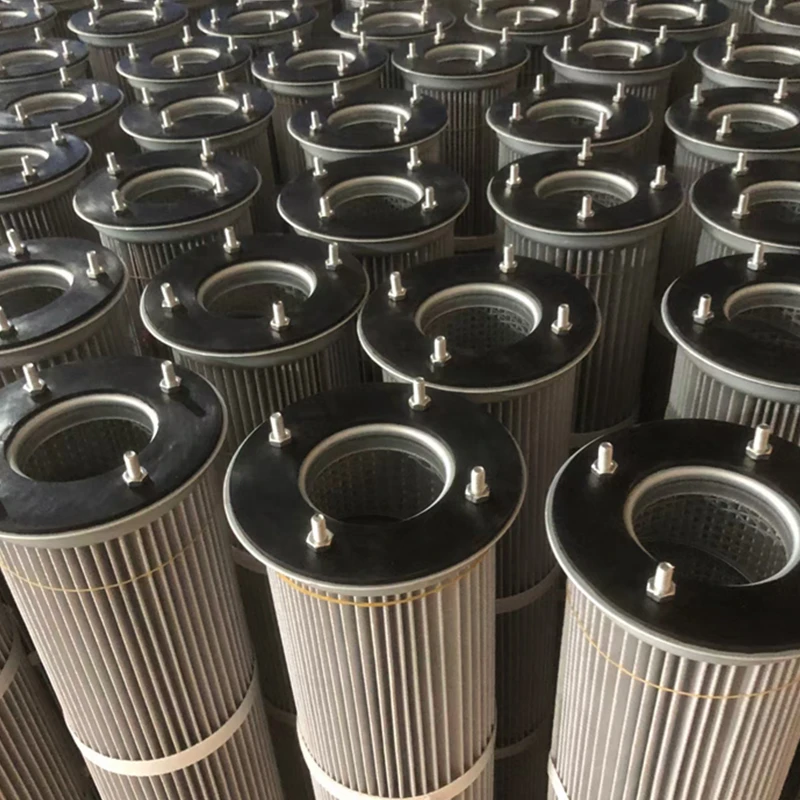 Tel:
+8615930870079
Tel:
+8615930870079
Gus . 14, 2024 01:00 Back to list
High-Performance Stainless Steel Filter Elements for Efficient Filtration Solutions and Applications
The Importance of Stainless Steel Filter Elements in Filtration Applications
In various industries, filtration plays a crucial role in ensuring the purity and quality of materials and fluids. Among the various types of filter elements available, stainless steel filter elements stand out due to their impressive durability, strength, and resistance to corrosion. This article will explore the features, benefits, and applications of stainless steel filter elements, highlighting why they are a preferred choice in many filtration systems.
Features of Stainless Steel Filter Elements
Stainless steel filter elements are constructed from high-quality stainless steel, typically alloy 304 or 316. These alloys contain chromium and nickel, providing excellent resistance to oxidation and corrosion. The manufacturing process often includes techniques like sintering, welding, or weaving, allowing for the production of filters with various pore sizes and filtration capabilities. Some stainless steel filters can achieve precision filtration down to 1 micron, making them suitable for removing particles from liquids and gases effectively.
Another key feature is the high-pressure tolerance of stainless steel filter elements. Unlike their counterparts made from paper or plastic, these filters can withstand extreme temperatures and pressures, which is essential in many industrial applications. Additionally, they can be cleaned and reused multiple times, making them cost-effective in the long run.
Benefits of Using Stainless Steel Filter Elements
1. Durability One of the most significant advantages of stainless steel filters is their durability. They can endure harsh conditions, including high-temperature and high-pressure environments, which would typically compromise other filter materials.
2. Chemical Resistance Stainless steel is inherently resistant to a wide range of chemicals, making these filter elements ideal for processes involving caustic substances, oils, and various industrial chemicals.
3. Eco-Friendly As stainless steel is a recyclable material, using stainless steel filter elements contributes to environmental sustainability. Unlike disposable filters, which contribute to waste, these filters can be cleaned, sterilized, and reused, reducing overall material consumption.
4. Cost-Effectiveness Although the initial investment in stainless steel filters may be higher than that of disposable options, their longevity and reusability offer significant savings over time. Industries can reduce maintenance costs and downtime typically associated with frequent filter replacements.
stainless steel filter element

5. High Flow Rates The design and structure of stainless steel filter elements allow for high flow rates while maintaining effective filtration. This is critical in industries where fluid transfer must occur continuously and efficiently.
Applications of Stainless Steel Filter Elements
Stainless steel filter elements find applications across a diverse range of industries, including
- Oil and Gas They are essential for filtering out impurities and particulates from oil, natural gas, and other hydrocarbons to ensure the quality of the products being extracted and processed.
- Food and Beverage In this sector, eliminating contaminants is critical to maintaining product quality and safety. Stainless steel filters are often used in processes like brewing, winemaking, and dairy processing.
- Pharmaceuticals Quality control is paramount in the pharmaceutical industry. Stainless steel filters are employed for sterilization and filtration to ensure that no contaminants affect drug production.
- Water Treatment These filters help in municipal and industrial water treatment operations by removing sediments, oils, and other impurities, ensuring the provision of clean and safe water.
Conclusion
Stainless steel filter elements are a vital component in many industrial filtration processes. Their remarkable durability, resistance to corrosion, reusability, and eco-friendly nature make them an excellent choice for various applications. As industries continue to prioritize efficiency and sustainability, the demand for stainless steel filter elements is likely to grow, solidifying their position as a key player in the world of filtration technology.
-
Types and Applications of Air Filtration CartridgesNewsJul.28,2025
-
The Role of Gas Turbine FiltersNewsJul.28,2025
-
Mastering Air Filter Cartridge UseNewsJul.28,2025
-
Advanced Turbine Filters for Modern Gas TurbinesNewsJul.28,2025
-
Cellulose Air Filter Cartridge Advantages in Dust FiltrationNewsJul.28,2025
-
Cellulose Filters for Air Particle ReductionNewsJul.28,2025

 Email:
Email:





